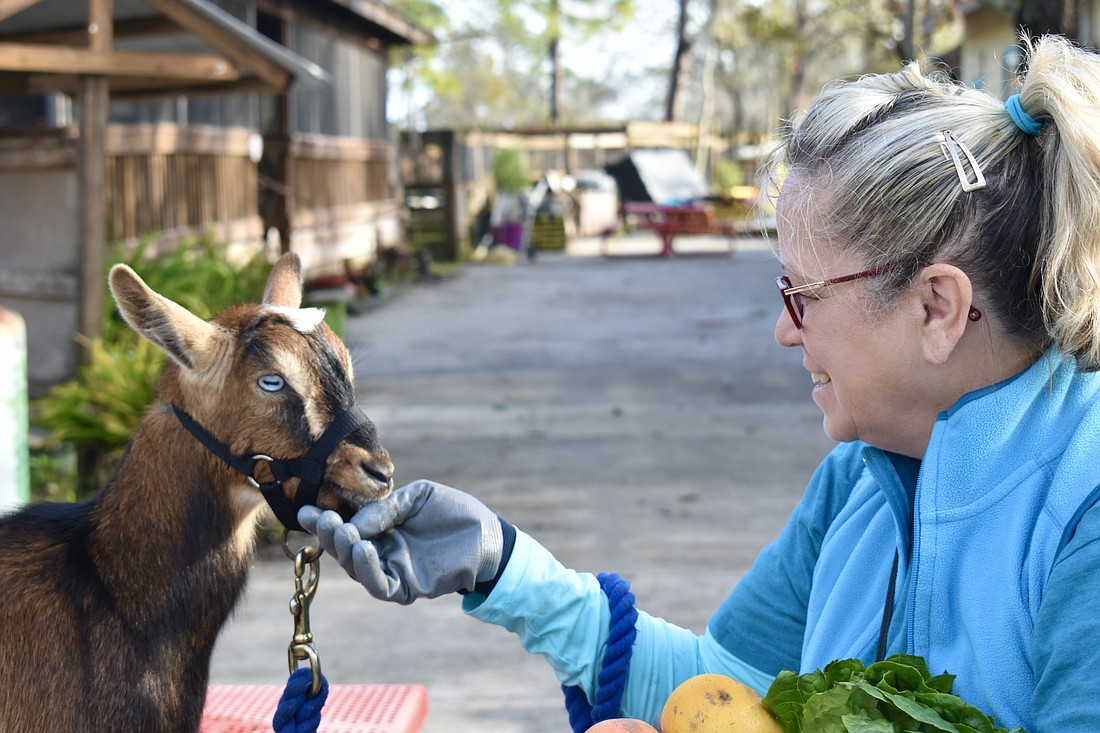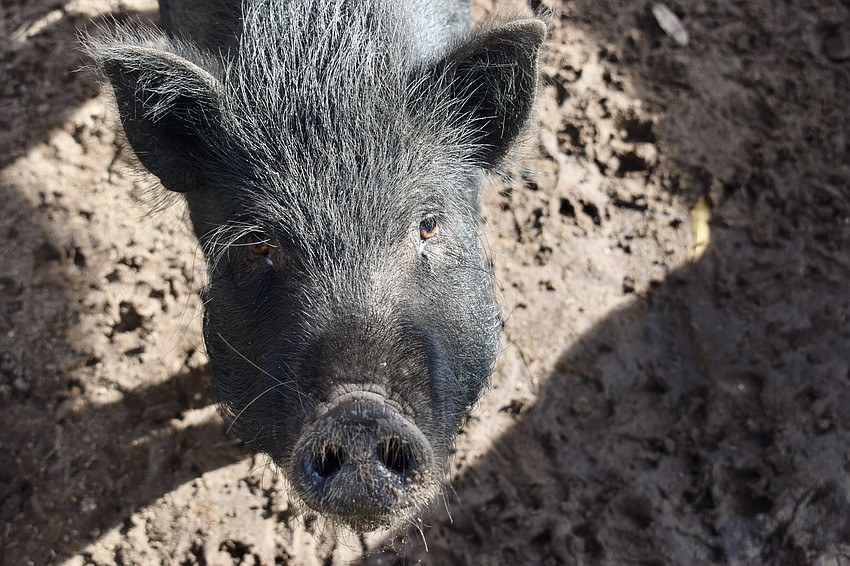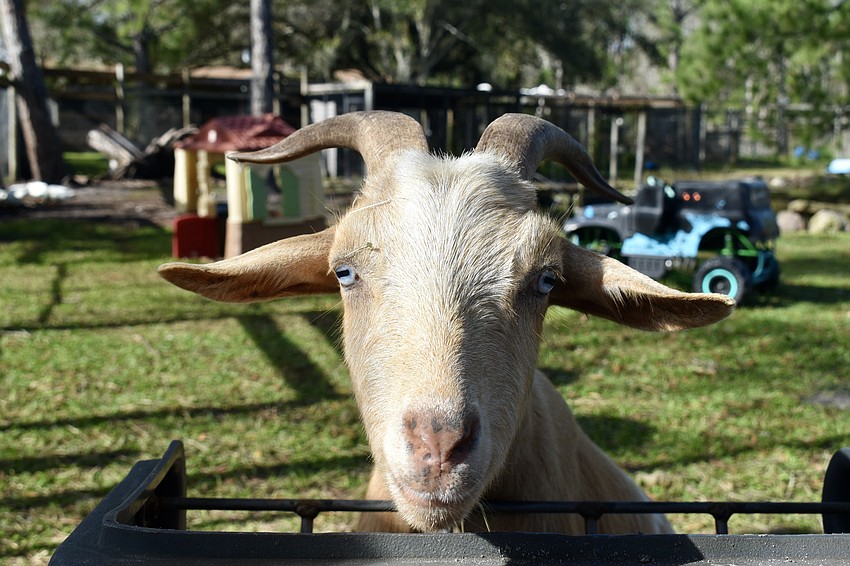- March 18, 2025
-
-
Loading

Loading

Living with 160 animals takes a lot of feed and a lot of help.
Lisa and Dave Burns operate the Farmhouse Animal and Nature Sanctuary in Myakka City and live on site with 25 different animal species.
Chickens, pigs, goats and a cow named Winnie are among the farm animals. The exotics include sugar gliders, a bearded dragon, an albino kangaroo and a wallaroo. Most of the rescued animals stay at the sanctuary, but some of the birds, bunnies, guinea pigs and tortoises are put up for adoption.
“Having something like this wouldn’t be possible without having a live-in caretaker,” Lisa Burns said. “I couldn’t tell you the amount of times we’ve had to be out here in the middle of the night taking care of something.”
The couple walked the property at 2 a.m. after the worst of Hurricane Ian had passed and found downed fence panels along the perimeter where the animals could wander out to the road. They carried metal gates through the wind and the dark to erect a secondary fence and keep the animals safe, but the pair can’t do everything on their own.
The sanctuary, which works with Animal Services in both Manatee and Sarasota and also the FWC’s Exotic Pet Amnesty Program, hasn’t reopened to the public since the hurricane caused over $80,000 in damages.

Without tours available, the only way to see behind the gates is to volunteer. The sanctuary is seeking at least eight more volunteers to add to the roster of 19. Only seven help out on a weekly basis.
The commitment can be as little as once a month for a 3-hour shift, but judging from the Wednesday crew, volunteers may want to hang around a little longer or bring a friend.
Bea Sampedro volunteered first, then she got Lisa Kleeberg to volunteer, who got Bobbi Walsh to volunteer, who got John Hall to volunteer. The ladies call themselves “The Strandettes” because they all live in River Strand and carpool together.
Hall calls volunteering at the sanctuary his “Wednesday rehab.”
“I had heart surgery, and I’m kind of limited to what I can do, so they’re very gracious that way and don’t work me too hard,” he said.
Hall used to train show horses, so he knows how to muck a stall, but hard labor isn't the only way to help. The sanctuary hasn’t attended the Myakka City Co-op this season because they’re too short-staffed to man a booth.
Despite being short-staffed, the nonprofit continues to expand its services.
The nonprofit started a food bank on site in May 2023 to support people in the area who were struggling to feed their animals. When it first started, they had only three people register for the program Now, 27 people are registered to receive food for their exotic pets, farm animals and everything in between.
“Three of the people who use our food bank are shut-ins," Lisa Burns said. "We have a volunteer who comes here the day that we distribute, and she picks up all three and delivers to them."

That volunteer's job of pick-up and delivery is an example of the variety of tasks that are available at the sanctuary.
“If you don’t want to shovel poop, we have something else you can do,” Burns said.
Thanks to an anonymous donation, the Farmhouse was able to purchase a bus to use for community outreach. It’s still being converted, but will include lightweight, lock-in-place cages in the back to bring some of the smaller animals to events. The plan is to start working with schools and homeschool groups to provide animal education.
The donation is also paying to renovate a room that will serve as a hydrotherapy room for dogs and goats.
“We had a few goats that we’ve had to do that with in the past, and we have a dog with hip dysplasia,” Lisa Burns said. “The idea is to offer it to the community once we start. If there’s anyone out there that has a dog that needs that kind of therapy, they can come out here and use the pool.”
The donation was earmarked for special projects, but Burns said donations are mostly needed for operational costs. Just feeding the animals every month costs $2,000.